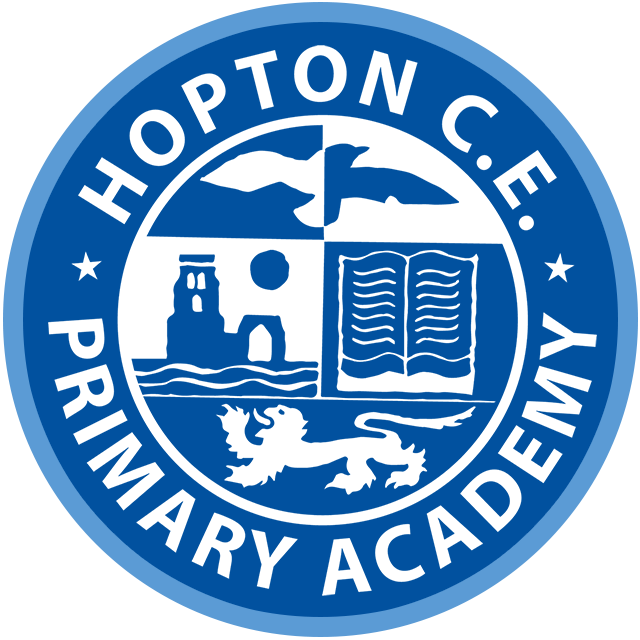History vision statement
“History is merely a list of surprises. It can only prepare us to be surprised yet again.”
Kurt Vonnegut

The learning of history inspires our pupils to have a curiosity of everything around them and to be inquisitive about events and people from the past.
History intends to allow our children to be immersed in events from the past and to forge links between these events and how we live our lives today.
At Hopton, history is taught actively and immersively by following the Kapow Primary scheme of learning which encourages the children to compare differences and similarities of different time periods by acting out, experiencing and recreating an event in time.
We strongly believe that the purpose of History is about historical literacy. This means we aim for children to be able to hold a balanced and well-informed conversation about people and events from the past. To be able to think critically and weigh evidence and develop their own viewpoint and judgment of local, national and world-wide historical events.
The basis of our curriculum is inspired by our school vision and ethos of #CARE, compassion, aspiration, respect and equality/equity.
Our aims for history
The national curriculum for history aims to ensure that all pupils:
- know and understand the history of these islands as a coherent, chronological narrative, from the earliest times to the present day: how people’s lives have shaped this nation and how Britain has influenced and been influenced by the wider world
- know and understand significant aspects of the history of the wider world: the nature of ancient civilisations; the expansion and dissolution of empires; characteristic features of past non-European societies; achievements and follies of mankind
- gain and deploy a historically grounded understanding of abstract terms such as ‘empire’, ‘civilisation’, ‘parliament’ and ‘peasantry’
- understand historical concepts such as continuity and change, cause and consequence, similarity, difference and significance, and use them to make connections, draw contrasts, analyse trends, frame historically-valid questions and create their own structured accounts, including written narratives and analyses
- understand the methods of historical enquiry, including how evidence is used rigorously to make historical claims, and discern how and why contrasting arguments and interpretations of the past have been constructed
- gain historical perspective by placing their growing knowledge into different contexts, understanding the connections between local, regional, national and international history; between cultural, economic, military, political, religious and social history; and between short- and long-term timescales.
Spiritual development in history
The study of history involves a sense of curiosity and mystery of how and why events in the past happened and their many causes. It also raises questions and a willingness to reflect on their experiences, and helping pupils to a realisation that events did not have to happen that way, they could have taken other directions.
Differing interpretations of sources, both primary and secondary, form part of all key stages and we encourage pupils to reflect on their application if their learning.
A sense of empathy is consistently extended in lessons as history demands an understanding of others and other contexts.




